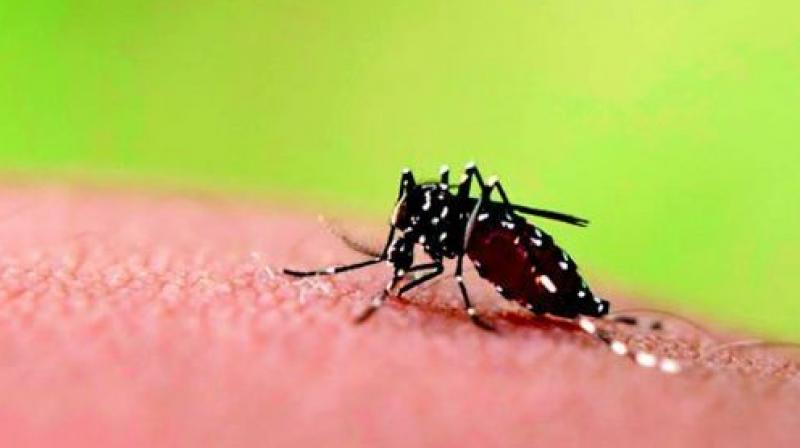Unidentified fevers test Telangana health sector
Mosquito container index at an all-time high.

Hyderabad: The mosquito container index (the percentage of water-holding containers infested with larvae or pupae) is above five per cent this year and experts state that it requires very strong community participation to control the breeding areas. With widespread dengue, malaria, chikunguniya and also mysterious fevers that are not being identified in tests, it is all the more important to look at mosquito control programmes that go be-yond fogging, spraying and anti-larva operations.
Dr K.K. Aggarwal, president of the Indian Medical Association, says that the index is at an all time high this year. “Hospitals are flooded with patients who are coming with low and high grade viral fevers and mosquito related illness. This clearly shows that the mosquito control programme has not worked this year and it is important to have strong community participation round the year to control mosquitoes.”
Dr T. Narsinga Reddy, senior consultant, said that the October rains flooded many cellars and that has led to a major outbreak of mosquito-borne diseases.
This stagnant water was not completely flushed out, resulting in more breeding grounds for mosquitoes.
Many more people now know that the aedes egypti mosquito causes dengue, but mass control progra-mmes in communities, clusters and homes, to reduce the menace have not been effective.
A senior general phy-sician, who did not want to be named, said a clear picture of the mosquito problem must be given to the people. “Presently, government is not willing to collect, report, and evaluate the data to understand whi-ch are the high-risk areas. It is more of an individual fight and those who suffer have to deal with it. We need to approach it scientifically. Only then the mena-ce be handled properly.”
Pamphlets urging the observance of dry days once a week, and banners on dengue have been placed in apartments and colonies, but citizens are either not willing or not aware of the right steps to take.
Mysterious fevers are being reported which are seen for three days with pain in the joints but when the sufferer is tested for dengue, it proves to be negative.
Dr B. Raju, a general physician, explained that there is a “different virus with similar sym-ptoms. It subsides after three days but there can be a relapse after a few months.”
Doctors are noting the symptoms to understa-nd the reason for these fevers but maybe a bigger public health initiative is required.
Open plots, new breeding grounds for mosquitoes
Open plots in the city and around nalas have turned into garbage dumps.
Plastic, jute bags, cloth and vegetable waste is dumped here by just about anyone, making these sites new breeding grounds for mosquitoes, especially in the adjoining Ranga Reddy areas on the outskirts of the city.
A senior officer of the Greater Hyderabad Municipal Corporation, who is in-charge of fogging, explains that “the smoke does not affect the breeding ground which has been created in the plastic dumped in the garbage. These new sites are a safe haven for mosquitoes and the next day thousands of them emerge again.”
General physician Dr V. Balaji says that urbanisation has provided new places for mosquitoes to breed and that is the reason the problem is so serious.
“It is time to take a look at the micro level and begin the management by involving communities. This will ensure that homes are involved in keeping the premises mosquito free,” he said.

